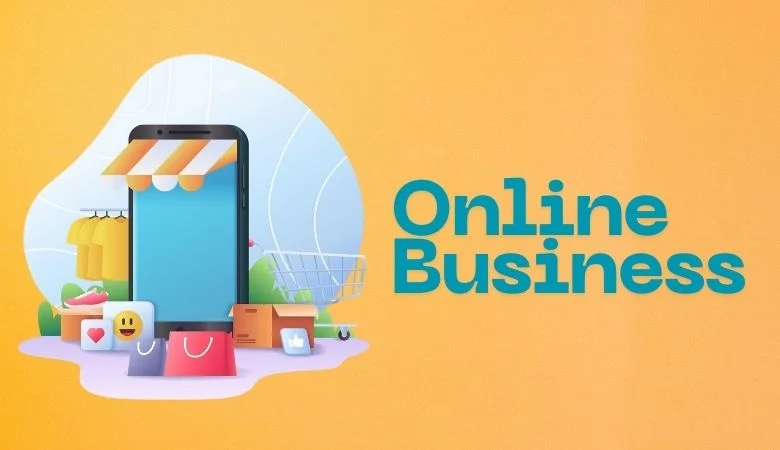There are many businesses to do, and there are many options for which company you should do. Well, traditional types of offline businesses are failing because the online business has started. One can start their online business by using the internet.
Many are doing online business, selling and buying the products and services from online business providers. It’s not that much of a challenge to set up the online business in 2025 because many agencies are available to help you to start an online business; well, the agencies charge a fee to help you.
It’s not a tough question of how to start an online business in 2025, comparing to traditional business. Online business is very much better. Well, in traditional offline businesses you have to buy a piece of land, or to rent land you need interior things, employees, and more expenses. in Online business you don’t need this many costs.
Start Online Business: By Following This Guide
The global eCommerce market will surpass $6.86 trillion in 2025. If buying online wasn’t as successful a couple of years ago, it indeed is now. Furthermore, online shopping advances the experience, making it more comfortable for the customer since they don’t have to leave their homes to make a purchase.

When you hold an online business, you can operate from anywhere, set your hours, and make a living on the Internet. Online businesses can also have meagre startup costs, making them excellent for new entrepreneurs without a lot of cash.
Here are our chosen steps for best online business to start in 2025:
1. Determine your product or service
Starting an online business allows you to reach millions of customers, but it also means facing significantly more competition.
No matter what you’re attempting to sell, you can trust that hundreds more online retailers have a related idea. What distinguishes your product from other related products? To improve your product and make it stand apart from the rest, you’ll be required to find a niche.
A business plan maps out the features of your company. It should work as the point of source for information about what your business sells, its structure, and how it will be run.
Business plans usually present the critical portions of your company, including financial projections, legal documentation, and leases or permits. It’s helpful for stakeholders, who should be capable of picturing every facet of your business with the plan.
2. Register your business Name
Your business requires to be registered according to your state’s laws. Pick an official business name and fill out the proper paperwork to make your business official.
First, make sure the name is possible in your state for an eCommerce business, and receive a trademark. These conditions will preserve your name from being stolen and make sure you don’t have the same name as another online store.
If your business is an LLC, your name will be registered when you register. If you are a member of a smaller structure, however, you will register a Doing Business As name, which defines the owner(s) from the business name.
3. Choose a Domain (Website) Name
As soon as you choose a name for your business, register a domain name for your business. The domain name is your Internet address, typically ending in “.com, .in, .uk, .net, or .org”. You can check your proposed domain name’s availability by typing it into the address bar of your Internet browser and recognizing if an existing website surfaces.
Many companies offer domain name registration—you just set up an account, identify the name you want to register and pay an annual fee.
Like the name of any separate business, go for something short and memorable that will be simple for people to remember. Visit the website of a domain registration provider and test out some of the names you’re excited about to decide whether they’re available. Once you land on the right name, go forward and register it.
4. Get a web hosting for the site
After purchasing a domain, you have to buy a hosting plan to store all your site data on servers. There are free hosting services to be noticed, but if you’re serious about running an online business long-term, consider settling for one that offers all the services you need.
You’ll be less liable to run into difficulties when your business begins to take off. Pick a hosting service that provides for growth.
5. Fix Up Your Finances
You can get a federal tax ID number from the Internal Revenue Service website. If you’re a sole proprietor or a single-member LLC, you can opt to use your Social Security number instead.
You’ll also be required to open a business bank account when beginning an online business, and if you’re performing transactions through your website, an account with Paypal or another online payment service.
6. Sales Tax and Licensing Terms
If you are trading things online, you’ll most probably have to collect and pay sales tax for transactions in any state where your business has a substantial presence. However, plans vary from state to state, and it’s a great idea to contact your state’s taxation department and an accountant to find out your duties.
You should verify with your city or county to find out if you require a business licence or are required to register a fictitious business name or DBA.
7. Get eCommerce software
You’ll require this so your customers can view your products, access their information and make a secure purchase.
The software securely stores customer information. Don’t skimp in this area, since the eCommerce software you want will make a big difference in how simple it is for customers to feel secure buying something from your store.
You can also practise an all-inclusive e-commerce web service. Sites such as Shopify, Wix, Square Online and Big Commmerce offers competing packages, with free templates, design packages, credit card processing, and more.
